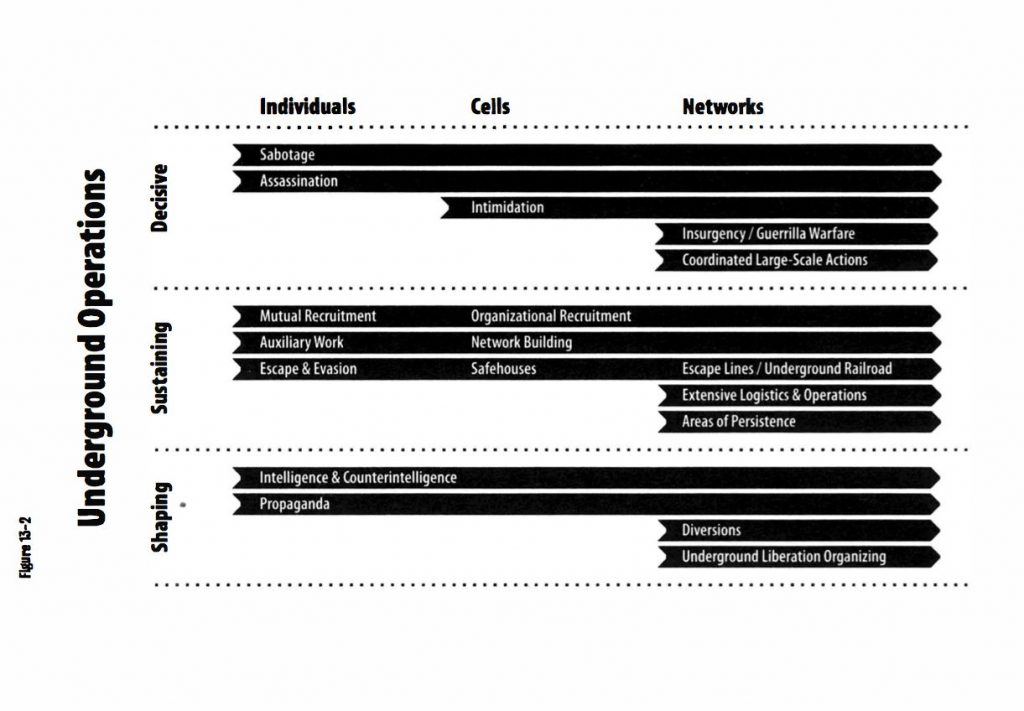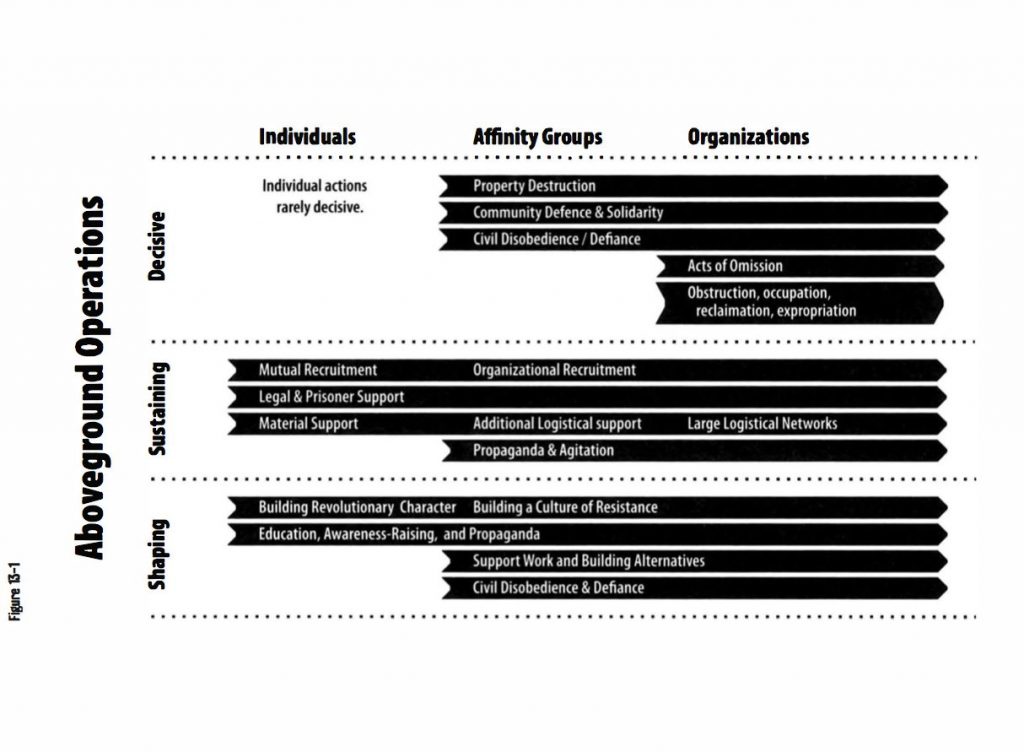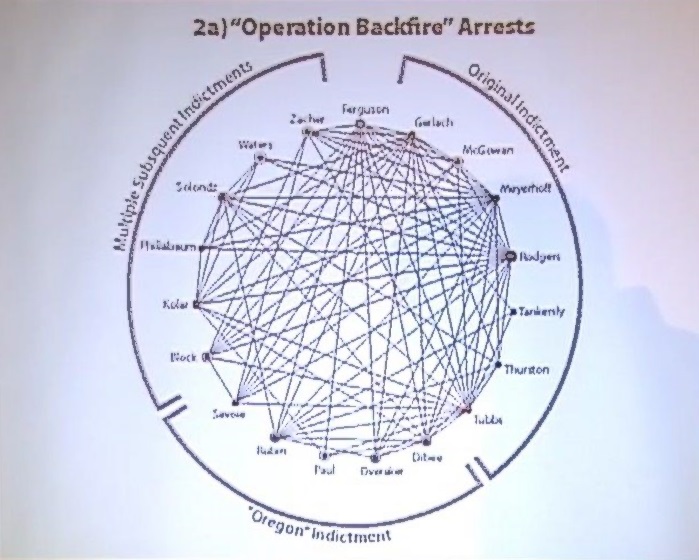by DGR Colorado Plateau | Jun 22, 2015 | Building Alternatives, Gender, Strategy & Analysis
In 1993 Michael Carter was arrested and indicted for underground environmental activism. Since then he’s worked aboveground, fighting timber sales and oil and gas leasing, protecting endangered species, and more. Today, he’s a member of Deep Green Resistance Colorado Plateau, and author of the memoir Kingfishers’ Song: Memories Against Civilization.
Time is Short spoke with him about his actions, underground resistance, and the prospects and problems facing the environmental movement. The first part of this interview is available here, and the second part here.
Time is Short: You mentioned some problems of radical groups—lack of respect for women and lack of a strategy. Could you expand on that?
Michael Carter: Sure. To begin with, I think both of those issues arise from a lifetime of privilege in the dominant culture. Men in particular seem prone to nihilism; I certainly was. Since we were taught—however unwittingly—that men are entitled to more of everything than women, our tendency is to bring this to all our endeavors.
I will give some credit to the movie “Night Moves” for illustrating that. The men cajole the woman into taking outlandish risks and they get off on the destruction, and that’s all they really do. When an innocent bystander is killed by their action, the woman has an emotional breakdown. She’s angry with the men because they told her no one would get hurt, and she breaches security by talking to other people about it. Their cell unravels and they don’t even explore their next options together. Instead of providing or even offering support, one of the men stalks and ultimately kills the woman to protect himself from getting caught, then vanishes back into mainstream consumer culture. So he’s not only a murderer but ultimately a cowardly hypocrite, as well.
Honestly, it appears to be more of an anti-underground propaganda piece than anything. Or maybe it’s just a vapid film, but it does have one somewhat valid point—that we white Americans, particularly men, are an overprivileged self-centered lot who won’t hesitate to hurt anyone who threatens us.
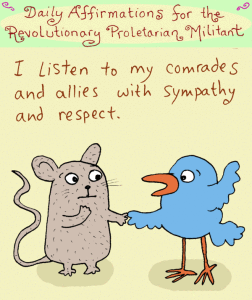
Artwork by Stephanie McMillan
That’s a fictional example, but any female activist can tell you the same thing. And of course misogyny isn’t limited to underground or militant groups; I saw all sorts of male self-indulgence and superiority in aboveground circles, moderate and radical both. It took hindsight for me to recognize it, even in myself. That’s a central problem of radical environmentalism, one reason why it’s been so ineffective. Why should any woman invest her time and energy in an immature movement that holds her in such low regard? I’ve heard this complaint about Occupy groups, anarchists, aboveground direct action groups, you name it.
Groups can overcome that by putting women in positions of leadership and creating secure, uncompromised spaces for them to do their work. I like to reflect on the multi-cultural resistance to the Burmese military dictatorship, which is also a good example of a combined above- and underground effort, of militant and non-violent tactics. The indigenous people of Burma traditionally held women in positions of respect within their cultures, so they had an advantage in building that into their resistance movements, but there’s no reason we couldn’t imitate that anywhere. Moreover, if there are going to be sustainable and just cultures in the future, women are going to be playing critical roles in forming and running them, so men should be doing everything possible to advocate for their absolute human rights.
As for strategy, it’s a waste of risk-taking for someone to cut down billboards or burn the paint off bulldozers. It’s important not to equate willingness with strategy, or radicalism and militancy with intelligence. For example, I just noticed an oil exploration subcontractor has opened an office in my town. Bad news, right? I had a fleeting wish to smash their windows, maybe burn the place down. That’ll teach ‘em, they’ll take us seriously then. But it wouldn’t do anything, only net the company an insurance settlement they’d rebuild with and reinforce the image of militant activists as mindless, dangerous thugs.
If I were underground, I’d at least take the time to choose a much more costly and hard-to-replace target. I’d do everything I could to coordinate an attack that would make it harder for the company to recover and continue doing business. And I’d only do these things after I had a better understanding of the industry and its overall effects, and a wider-focused examination of how that industry falls into the mechanism of civilization itself.
By widening the scope further, you see that ending oil and gas development might better be approached from an aboveground stance—by community rights initiatives, for example, that have outlawed fracking from New York to Texas to California. That seems to stand a much better chance of being effective, and can be part of a still wider strategy to end fossil fuel extraction altogether, which would also require militant tactics. You have to make room for everything, any tactic that has a chance of working, and begin your evaluation there.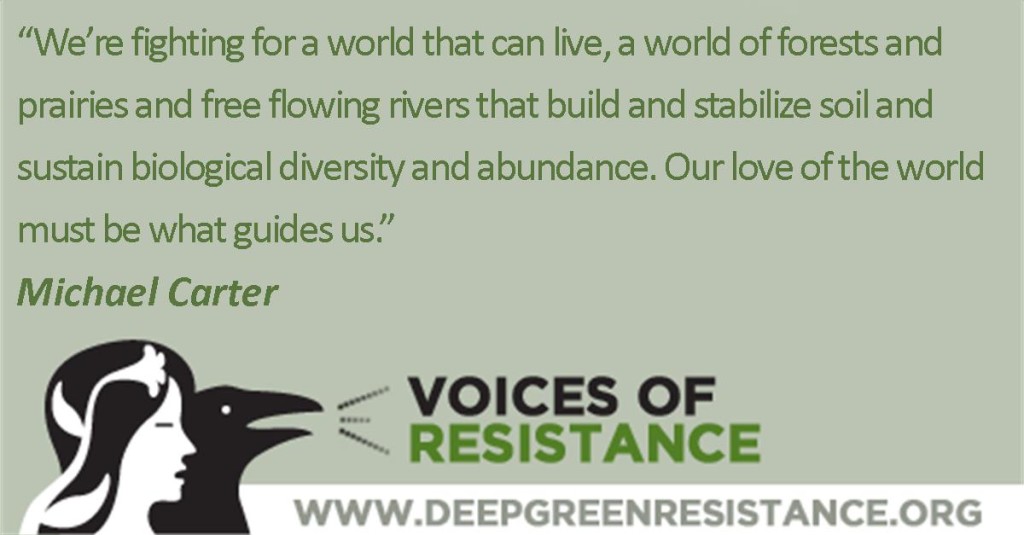
To use the Oak Flat copper mine example, now the mine is that much closer to happening, and the people working against it have to reappraise what they have available. That particular issue involves indigenous sacred sites, so how might that be respectfully addressed, and employed in fighting the mine aboveground? Might there be enough people to stop it with civil disobedience? Is there any legal recourse? If there isn’t, how might an underground cell appraise it? Are there any transportation bottlenecks to target, any uniquely expensive equipment? How does timing fit in? How about market conditions—hit them when copper prices are down, maybe? Target the parent company or its other subsidiaries? What are the company’s financial resources?
An underground needs a strategy for long-term success and a decision-making mechanism that evaluates other actions. Then they can make more tightly focused decisions about tactics, abilities, resources, timing, and coordinated effort. The French Resistance to the Nazis couldn’t invade Berlin, but they sure could dynamite train tracks. You wouldn’t want to sabotage the first bulldozer you came across in the woods; you’d want to know who it belonged to, if it mattered, and that you weren’t going to get caught. Maybe it belongs to a habitat restoration group, who can say? It doesn’t do any good to put a small logging contractor out of business, and it doesn’t hurt a big corporation to destroy machinery that is inexpensive, so those questions need to be answered beforehand. I think successful underground strikes must be mostly about planning; they should never, never be about impulse.
TS: There are a lot of folks out there who support the use of underground action and sabotage in defense of Earth, but for any number of reasons—family commitments, physical limitations, and so on—can’t undertake that kind of action themselves. What do you think they can do to support those willing and able to engage in militant action?
MC: Aboveground people need to advocate underground action, so those who are able to be underground have some sort of political platform. Not to promote the IRA or its tactics (like bombing nightclubs), but its political wing of Sinn Fein is a good example. I’ve heard a lot of objections to the idea of advocating but not participating in underground actions, that there’s some kind of “do as I say, not as I do” hypocrisy in it, but that reflects a misunderstanding of resistance movements, or the requirements of militancy in general. Any on-the-ground combatant needs backup; it’s just the way it is. And remember that being aboveground doesn’t guarantee you any safety. In fact, if the movement becomes effective, it’s the aboveground people most vulnerable to harm, because they’re going to be well known. In that sense, it’s safer to be underground. Think of the all the outspoken people branded as intellectuals and rounded up by the Nazis.
The next most important support is financial and material, so they can have some security if they’re arrested. When environmentalists were fighting logging in Clayoquot Sound on Vancouver Island in the 1990s, Paul Watson (of the Sea Shepherd Conservation Society) offered to pay the legal defense of anyone caught tree spiking. Legal defense funds and on-call pro-bono lawyers come immediately to mind, but I’m sure that could be expanded upon. Knowing that someone is going to help if something horrible happens, combatants can take more initiative, can be more able to engineer effective actions.
We hope there won’t be any prisoners, but if there are, they must be supported too. They can’t just be forgotten after a month. As I mentioned before, even getting letters in jail is a huge morale booster. If prisoners have families, it’s going to make a big difference for them to know that their loved ones aren’t alone and that they will have some sort of aboveground material support. This is part of what we mean when we talk about a culture of resistance.
TS: You’ve participated in a wide range of actions, spanning the spectrum from traditional legal appeals to sabotage. With this unique perspective, what do you see as being the most promising strategy for the environmental movement?
MC: We need more of everything, more of whatever we can assemble. There’s no denying that a lot of perfectly legal mainstream tactics can work well. We can’t litigate our way to sustainability any more than we can sabotage our way to sustainability; but for the people who are able to sue the enemy, that’s what they should be doing. Those who don’t have access to the courts (which is most everyone) need to find other roles. An effective movement will be a well-organized movement, willing to confront power, knowing that everything is at stake.
Decisive Ecological Warfare is the only global strategy that I know of. It lays out clear goals and ways of arranging above- and underground groups based on historical examples of effective movements. If would-be activists are feeling unsure, this might be a way for them to get started, but I’m sure other plans can emerge with time and experience. DEW is just a starting point.
Remember the hardest times are in the beginning, when you’re making inevitable mistakes and going through abrupt learning curves. When I first joined Deep Green Resistance, I was very uneasy about it because I still felt burned out from the ‘90s struggles. What I’ve discovered is that real strength and endurance is founded in humility and respect. I’ve learned a lot from others in the group, some of whom are half my age and younger, and that’s a humbling experience. I never really understood what a struggle it is for women, either, in radical movements or the culture at large; my time in DGR has brought that into focus.
Look at the trans controversy; here are males asking to subordinate women’s experiences and safe spaces so they can feel comfortable. It’s hard for civilized men to imagine relationships that aren’t based on the dominant-submissive model of civilization, and I think that’s what the issue is really about—not phobia, not exclusionary politics, but rather role-playing that’s all about identity. Male strength traditionally comes from arrogance and false pride, which naturally leads to insecurity, fear, and a need to constantly assert an upper hand, a need to be right. A much more secure stance is to recognize the power of the earth, and allow ourselves to serve that power, not to pretend to understand or control it.
 TS: We agree that time is not on our side. What do you think is on our side?
TS: We agree that time is not on our side. What do you think is on our side?
MC: Three things: first, the planet wants to live. It wants biological diversity, abundance, and above all topsoil, and that’s what will provide any basis for life in the future. I think humans want to live, too; and more than just live, but be satisfied in living well. Civilization offers only a sorry substitute for living well to only a small minority.
The second is that activists now have a distinct advantage in that it’s easier to get information anonymously. The more that can be safely done with computers, including attacking computer systems, the better—but even if it’s just finding out whose machinery is where, how industrial systems are built and laid out, that’s much easier to come by. On the other hand the enemy has a similar advantage in surveillance and investigation, so security is more crucial than ever.
The third is that the easily accessible resources that empires need to function are all but gone. There will never be another age of cheap oil, iron ore mountains, abundant forest, and continents of topsoil. Once the infrastructure of civilized humanity collapses or is intentionally broken, it can’t really be rebuilt. Then humans will need to learn how to live in much smaller-scale cultures based on what the land can support and how justly they treat one another. That will be no utopia, of course, but it’s still humanity’s best option. The fight we’re now engaged in is over what living material will be available for those new, localized cultures—and more importantly, the larger nonhuman biological communities—to sustain themselves. What polar bears, salmon, and migratory birds need, we will also need. Our futures are forever linked.
Time is Short: Reports, Reflections & Analysis on Underground Resistance is a bulletin dedicated to promoting and normalizing underground resistance, as well as dissecting and studying its forms and implementation, including essays and articles about underground resistance, surveys of current and historical resistance movements, militant theory and praxis, strategic analysis, and more. We welcome you to contact us with comments, questions, or other ideas at undergroundpromotion@deepgreenresistance.org

by DGR Colorado Plateau | Apr 25, 2015 | Agriculture, Building Alternatives, Strategy & Analysis
In 1993 Michael Carter was arrested and indicted for underground environmental activism. Since then he’s worked aboveground, fighting timber sales and oil and gas leasing, protecting endangered species, and more. Today, he’s a member of Deep Green Resistance Colorado Plateau, and author of the memoir Kingfishers’ Song: Memories Against Civilization.
Time is Short spoke with him about his actions, underground resistance, and the prospects and problems facing the environmental movement. The first part of this interview is available here, and the third part here.
Time is Short: Your actions weren’t linked to other issues or framed in a greater perspective. How important do you think having well-framed analysis is in regards to sabotage and other such actions?
Michael Carter: It is the most important thing. Issue framing is one of the ways that dissent gets defeated, as with abortion rights, where the issue is framed as murder versus convenience. Hunger is framed as a technical difficulty—how to get food to poor people—not as an inevitable consequence of agriculture and capitalism. Media consumers want tight little packages like that.
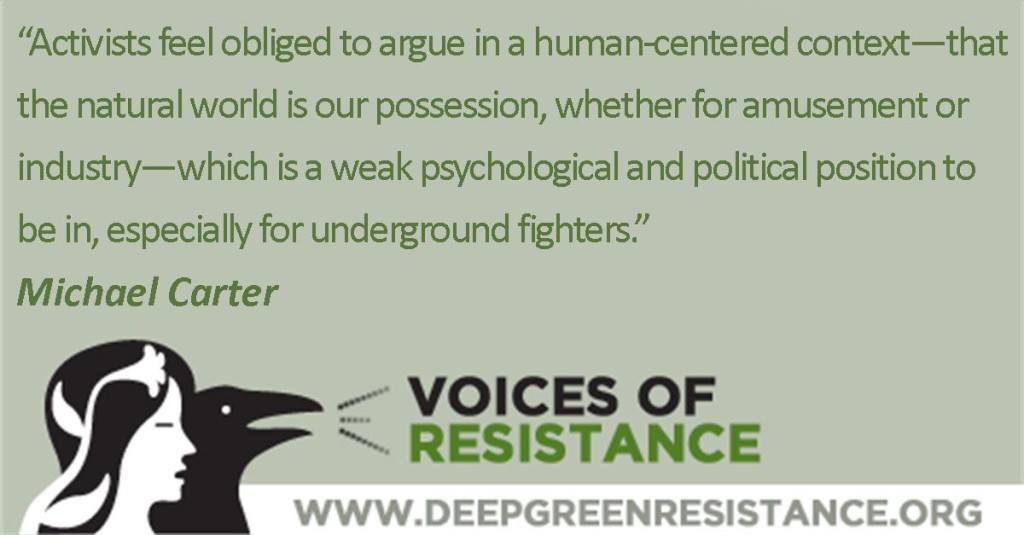
In the early ‘90s, wilderness and biodiversity preservation were framed as aesthetic issues, or as user-group and special interests conflict; between fishermen and loggers, say, or backpackers and ORVers. That’s how policy decisions and compromises were justified, especially legislatively. My biggest aboveground campaign of that time was against a Montana wilderness bill, because of the “release language” that allowed industrial development of roadless federal lands. Yet most of the public debate revolved around an oversimplified comparison of protected versus non-protected acreage numbers. It appeared reasonable—moderate—because the issue was trivialized from the start.
That sort of situation persists to this day, where compromises between industry, government, and corporate environmentalists are based on political framing rather than biological or physical reality—an area that industry or motorized recreationists would agree to protect might have no capacity for sustaining a threatened species, however reasonable the acreage numbers might look. Activists feel obliged to argue in a human-centered context—that the natural world is our possession, whether for amusement or industry—which is a weak psychological and political position to be in, especially for underground fighters.

Artwork by Stephanie McMillan
When I was one of them, I never felt I had a clear stance to work from. Was I risking a decade in prison for a backpacking trail? No. Well then what was I risking it for? I chose not to think that deeply, just to rampage onward. That was my next worst mistake after bad security. Without clear intentions and a solid understanding of the situation, actions can become uncoordinated, and potentially meaningless. No conscientious aboveground movement will support them. You can get entangled in your own uncertainty.
If I were now considering underground action—and of course I’m not, you must choose to be aboveground or underground and stick with it, another mistake I made—I would view it as part of a struggle against a larger power structure, against civilization as a whole. It’s important to understand that this is not the same thing as humanity.
TS: You called civilization a plan based on agriculture. Could you expand on that?
MC: Nothing else that the dominant culture does, industrial forestry and fishing, generating electricity, extracting fossil fuels, is as destructive as agriculture. None of it’s possible without agriculture. There’s some forty years of topsoil left, and agriculture is burning through it as if it will last forever, and it can’t. Topsoil is the sand in civilization’s hourglass, the same as fossil fuels and mineral ores; there is only so much of it. When it comes to physical limits, civilization has no rationality, or even a sense of its own ultimate self-interest; only a hidden-in-plain-sight secret that it’s going to consume everything. In a finite world it can never function for long, and all it’s doing now is grinding through the last frontiers. If civilization is still continuing twenty years from now, it won’t matter how many wilderness areas are designated; civilization is going to consume those wilderness areas.
TS: How is that analysis helpful? If civilization can never be sustained, doesn’t that remove any hope of success?
MC: If we’re serious about protecting life and promoting justice, we have to acknowledge that civilized humanity will never voluntarily take the steps needed for a sustainable way of life, because its history is entirely about war and occupation. That’s what civilization does: wage war and occupy land. It appears as though this is progress, that it’s humanity itself, but it’s not. Civilization will always make power and dominance its priority, and will never allow its priority to be challenged.

Artwork by Stephanie McMillan
For example, production of food could be fairly easily converted from annual grains to perennial grasses, producing milk, eggs, and meat. Polyface Farms in Virginia has demonstrated how eminently possible this is; on a large scale that would do enormous good, sequestering carbon and lowering diabetes, obesity, and pesticide and fertilizer use. But grass can’t be turned into a commodity; it can’t be stored and traded, so it can never serve capitalism’s needs. So that debate will never come up on CNN, because it falls so far outside the issue framing. Hardly anyone is discussing what’s really wrong, only which capitalist or nation state will get to the last remaining resources first and how technology might cope with the resulting crises.
Another example is the proposed copper mine at Oak Flat, near Superior, Arizona. The Eisenhower administration made the land off-limits to mining in 1955, and in December 2014 the US Senate reversed that with a rider to a defense authorization bill, and Obama signed it. Arizona Senator John McCain said, “To maintain the strength of the most technologically-advanced military in the world, America’s armed forces need stable supplies of copper for their equipment, ammunition, and electronics.” See how he justifies mining copper with military need? He’s closed the discussion with an unassailable warrant, since no one in power—and hardly anyone in the public at large—is going to question the military’s needs.
TS: Are you saying there’s no chance of voluntary reform?
MC: I’m saying that it’s going to be a fight. Significant social change is usually involuntary, contrary to popular notions about “being the change you want to see in the world” and “majority rules.” Most southern whites didn’t want the US Civil Rights Movement to exist, much less succeed. In the United States democracy is mostly a fictional theory anyway, because a tiny financial and political elite run the show.
For example, in the somewhat progressive state of Oregon, the agriculture lobby successfully defeated a measure to label foods containing genetically modified organisms. A majority of voters agreed they shouldn’t know what’s in their food, their most intimate need, because those in power had enough money to convince them. There’s little hope in trying to reason with the people who run civilization, or who are otherwise trapped by it, politically or financially or however. So long as the ruling class is able to extract wealth from the land and our labor, they will. If they’ve got the machinery and fuel to run their economy, they will eventually find the political bypasses to make it happen. It will consume lives and land until there’s nothing left to consume. When the soil is gone, that’s essentially it for the human species.

Oak Flat, Arizona
What’s the point of compromising with a political system that’s patently insane? A more sensible way of approaching the planet’s predicament would be to base tactical decisions on a strategy to strip power from those who are destroying the planet. This is the root, what we have to mean when we call it a radical—root-focused—struggle.
Picture a world with no food, rising temperatures, disease epidemics, drought, war. We see it unfolding now. This is what we’re fighting against. Or rather we’re fighting for a world that can live, a world of forests and prairies and free flowing rivers that build and stabilize soil and sustain biological diversity and abundance. Our love of the world must be what guides us.
TS: You’re suggesting a struggle that completely changes how humans have arranged themselves, the end of the capitalist economy, the eventual collapse of the nation-state model of society. That sounds impossibly difficult. How might resisters approach that?
MC: We can begin by building a movement that functions as a cultural replacement for the culture we’re stuck in now. Since civilized culture isn’t going to support anyone trying to take it apart, we need other systems of material, psychological, and emotional support.
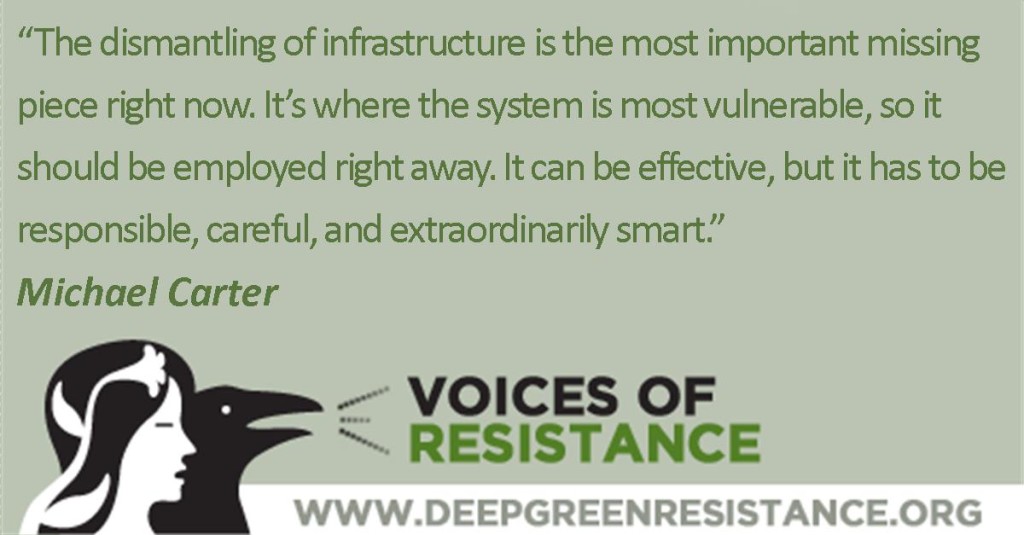
This would be particularly important for an underground movement. Ideally they would have a community that knows their secrets and works alongside them, just as militaries do. Building that network will be difficult to do in secret, because if they’re observing tight security, how do they even find others who agree with them? But because there’s little one or two people can do by themselves, they’ll have to find ways to do it. That’s a problem of logistics, however, and it’s important to separate it from personal issues.
When I was doing illegal actions, I wanted people to notice me as a hardcore environmentalist, which under the circumstances was foolish and narcissistic to the point of madness. If you have issues like that—and lots of people do, in our bizarre and hurtful culture—you need to resolve them with self-reflection and therapy, not activism. The most elegant solution would be for your secret community to support and acknowledge you, to help you find the strength and solidarity you need to do hard and necessary work, but there are substitutes available all the same.
TS: You’ve been involved with aboveground environmental work in the years since your underground actions. What have you worked on, and what are you doing now?
MC: I first got involved with forestry issues—writing timber sale appeals and that sort of thing. Later I helped write petitions to protect species under the Endangered Species Act. I burned out on that, though, and it took me a long time to get drawn back in. Aboveground people need the support of a community, too—more than ever. Derrick Jensen’s book A Language Older Than Words clarified the global situation for me, answered many questions I had about why things are so difficult right now. It taught me to be aware that as civilized culture approaches its end, people are getting ever more self-absorbed, apathetic, and cruel. Those who are still able to feel need to stand by each other as well as they can.
When Deep Green Resistance came into being, it was a perfect fit, and I’ve been focused on helping build that movement. Susan Hyatt and I are doing an essay series on the psychology of civilization, and how to cultivate the mental health needed for resistance. I’m also interested in positive underground propaganda. Having stories to support what people are doing and thinking is important. It helps cultivate the confidence and courage that activists need. That’s why governments publish propaganda in wartime; it works.
TS: So you think propaganda can be helpful?
MC: Yes, I do. The word has a negative connotation for some good reasons, but I don’t think that attempting to influence thoughts and actions with media is necessarily bad, so long as it’s honest. Nazi Germany used propaganda, but so did George Orwell and John Steinbeck. If civilization is brought down—that is, if the systems responsible for social injustice and planetary destruction are permanently disabled—it will require a sustained effort for many years by people who choose to act against most everything they’ve been taught to believe, and a willingness to risk their freedom and lives to bring it about. Entirely new resistance cultures will be needed. They will require a lot of new stories to sustain a vision of who humans really are, and what our lives are for, how they relate to other living things. So far as I know there’s little in the way of writing, movies, any sort of media that attempts to do that.
Edward Abbey wrote some fun books, and they were all we had; so we went along hoping we’d have some of that fun and that everything might come out all right in the end. We no longer have that luxury for self-indulgence. I’m not saying humor doesn’t have its place—quite the opposite—but the situation of the planet and social situation of civilization is now far more dire than it was during Abbey’s time. Effective propaganda should reflect that—it should honestly appraise the circumstances and realistically compose a response, so would-be resisters can choose what their role is going to be.
This is important for everyone, but especially important for an underground. In World War II, the Allies distributed Steinbeck’s propaganda novel The Moon is Down throughout occupied Europe. It was a short, simple book about how a small town in Norway fought against the Nazis. It was so mild in tone that Steinbeck was accused by some in the US government of sympathizing with the enemy for his realistic portrayal of German soldiers as mere people in an awful situation, and not superhuman monsters. Yet the occupying forces would shoot anyone on the spot if they caught them with a copy of the book. Compare that to Abbey’s books, and you see how far short The Monkey Wrench Gang falls of the necessary task.
TS: Can you suggest any contemporary propaganda?
Derrick Jensen’s Endgame books are the best I can think of, and the book Deep Green Resistance. There’s some negative-example propaganda worth mentioning, too. The book A Friend of the Earth, by T.C. Boyle. The movies “The East” and “Night Moves” are both about underground activists, and they’re terrible movies, at least as propaganda for effective resistance. “The East” is about a private security firm that infiltrates a cell whose only goals are theater and revenge, and “Night Moves” is even worse, about two swaggering men and one unprepared woman who blow up a hydroelectric dam.
The message is, “Don’t mess with this stuff, or you’ll end up dead.” But these films do point out some common problems of groups with an anarchistic mindset: they tend to belittle women and they operate without a coherent strategy. They’re in it for the identity, for the adrenaline, for the hook-up prospects—all terrible reasons to engage. So I suppose they’re worth a look for how not to behave. So is the documentary film “If a Tree Falls,” about the Earth Liberation Front.
Social change movements can suffer from problems of immaturity and self-infatuation just like individuals can. Radical environmentalism, like so many leftist causes, is rife with it. Most of the Earth First!ers I knew back in the ‘90s were so proud of their partying prowess, you couldn’t spend any time with them without their getting wasted and droning on about it all the next day. One of the reasons I drifted away from that movement was it was so full of arrogant and judgmental people, who seemed to spend most of their time criticizing their colleagues for impure living because they use paper towels or drive an old pickup instead of a bicycle.
This can lead to ridiculous guilt-tripping pissing matches. It’s no wonder environmentalists have such a bad reputation among the working class, when they’re indulging in self-righteous nitpicking that’s really just a reflection of their own circumstantial advantages and lack of focus on effectively defending the land. Tell a working mother to mothball her dishwasher because you heard it’s inefficient, see how far you get. It’s one of the worst things you can say to anyone, especially because it reinforces the collective-burden notion of responsibility for environmental destruction. This is what those in power want us to think. Developers build new golf courses in the desert, and we pretend we’re making a difference by dry-brushing our teeth. Who cares who’s greener than thou? The world is being gutted in front of our eyes.
Interview continues here.
Time is Short: Reports, Reflections & Analysis on Underground Resistance is a bulletin dedicated to promoting and normalizing underground resistance, as well as dissecting and studying its forms and implementation, including essays and articles about underground resistance, surveys of current and historical resistance movements, militant theory and praxis, strategic analysis, and more. We welcome you to contact us with comments, questions, or other ideas at undergroundpromotion@deepgreenresistance.org
by DGR Colorado Plateau | Mar 8, 2015 | Property & Material Destruction, Repression at Home, Strategy & Analysis
In 1993 Michael Carter was arrested and indicted for underground environmental activism. Since then he’s worked aboveground, fighting timber sales and oil and gas leasing, protecting endangered species, and more. Today, he’s a member of Deep Green Resistance Colorado Plateau, and author of the memoir Kingfishers’ Song: Memories Against Civilization.
Time is Short spoke with him about his actions, underground resistance, and the prospects and problems facing the environmental movement. Due to the length of the interview, we’ve presented it in three installments; go to Part II here, and Part III here.
Time is Short: Can you give a brief description of what it was you did?
Michael Carter: The significant actions were tree spiking—where nails are driven into trees and the timber company warned against cutting them—and sabotaging of road building machinery. We cut down plenty of billboards too, and this got most of the media attention. We did this for about two years in the late ‘80s and early ‘90s, about twenty actions. My brother Sean was also indicted. The FBI tried to round up a larger conspiracy, but that didn’t stick.
TS: How did you approach those actions? What was the context?
MC: We didn’t know a lot about environmental issues or political resistance, so we didn’t have much understanding of context. We had an instinctive dislike of clear cuts, and we had the book The Monkey Wrench Gang. Other people were monkeywrenching, that is, sabotaging industry to protect wilderness, so we had some vague ideas about tactics but no manual, no concrete theory. We knew what Earth First! was, although we weren’t members. It was a conspiracy only in the remotest sense. We had little strategy and the actions were impetuous. If we’d been robbing banks instead, we’d have been shot in the act.
Nor did we really understand how bad the problem was. We thought that deforestation was damaging to the land, but we didn’t get the depth of its implications and we didn’t link it to other atrocities. We just thought that we were on the extreme edge of the marginal issue of forestry. This was before many were talking about global warming or ocean acidification or mass extinction. It all seemed much less severe than now, and of course it was. The losses since then, of species and habitat and pollution, are terrible. No monkeywrenching I know of did anything significant to stop that. It was scattered, aimed at minor targets, and had no aboveground political movement behind it.
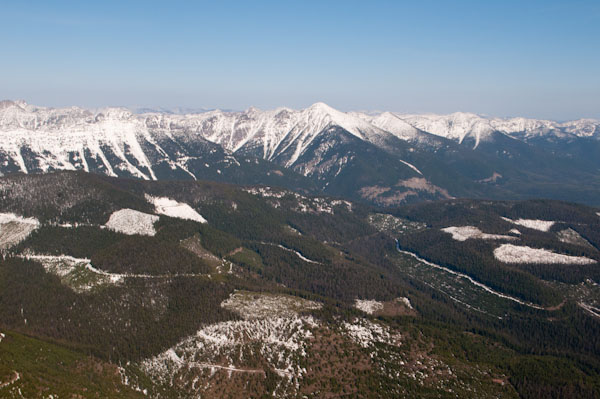
Clearcuts in the Swan Valley, MT near Loon Lake on the slope of Mission Mountains. Photo by George Wuerthner.
TS: What was the public response to your actions?
MC: They saw them as vandalism, mindlessly criminal, even if they were politically motivated. This was before 9/11, before the Oklahoma City bombing; the idea of terrorism wasn’t so powerful, so our actions weren’t taken nearly as seriously as they would be now.
We were charged by the state of Montana with criminal mischief and criminal endangerment. The state’s evidence was solid enough we thought we couldn’t win a trial, so we pled guilty on the chance the judge wouldn’t send us to prison. Our defense was to say, “We’re sorry we did it, it was motivated by sincerity but it was dumb.” And that was true. We were able to get our charges reduced from criminal endangerment to criminal mischief. I got a 19 year suspended prison sentence, Sean got 9 years suspended. We both had to pay a lot of money, some $40,000, but I only spent three months in county jail and Sean got out of a jail sentence altogether. We were lucky.
TS: As you said, this was before the obsessive fear of terrorism. How do you think that played into your trial and indictment, and how do you think it would be different today?
MC: Had it happened after any big terrorism event, they would have sent us to prison, there’s no doubt about that. States have to maintain a level of constant fear and prove themselves able to protect citizens.
The irony was, I’m not sure I wanted to be serious—there seemed to be something protective in not being all that effective, in being intentionally quixotic, in being a little cute about it. There was a particularly comical aspect to cutting down billboards, and that was helpful only when I was arrested. It made it look less like terrorism and more like reckless things I did when I was drunk, and a lot of people approved of it because they thought billboards were tacky. I want to emphasize that cutting down billboards is nothing I’d advise anyone to consider, only that a little bit of public approval made a surprising difference to my morale, and may have positively influenced sentencing. But the point, of course, is to be effective and not get caught in the first place. These days, if someone gets caught in underground actions, they will be in a lot more trouble than ever before.
TS: How did you get caught?
We left fingerprints and tire tracks, we rented equipment under our own names—like an acetylene torch used to cut down steel billboard posts—and we told people who didn’t need to know about it. We assumed we were safe if they didn’t catch us in the act and because our fingerprints weren’t on file, and we couldn’t have been more wrong. The cops can subpoena anyone’s fingerprints, and use that evidence for something in the past. The importance of security can’t be overstated—and we didn’t have any. Even with a couple rudimentary precautions, we might have saved ourselves the whole ordeal of getting caught. If we’d read the security chapter of Dave Foreman’s book Ecodefense, I don’t think we would have even come under suspicion. Anyone taking any action, above- or underground, needs to take the time to learn security well.
It’s not just saving yourself the anguish of arrest and prison time. If you’re rigorous about security, you might be able to have a real chance at changing how the future of the planet plays out. You can have no impact at all in a jail cell. In our case, we definitely could have stopped timber sales with tree spiking even though that tactic was extremely unpopular politically. It was seen as an act of violence against innocent lumber mill workers instead of a preventative measure to protect forests. The dilemma never got past that stage, though. We had little chance of having any reasoned tactical considerations—let alone making reasoned decisions—because we were always a little too afraid of being caught. With good reason, it turns out.
TS: What have you learned from your experience? Looking back on what you did all those years ago, what’s your perspective on your actions now? Is there anything you would have done differently?
MC: Well I definitely would have taken steps to not get caught. I would have picked my targets more carefully, and I would have entered into an understanding with myself that while my enemy is composed of people, it’s only a system, inhuman and relentless. It can’t be reasoned with; it has no sanity, no sense of morality, no love of anything. Its job is to consume. I would have tried to focus on that guiding fact, and not on the people running it or who were dependent on it. I would have tried to find the weaknesses in the system, and then attacked those.
I’d have tried not to allow my emotions to dictate my strategy or actions. Emotions might get me there in the first place—I don’t think you could get to such a desperate point without a strong emotional response—but once I arrived at the decision to act, I would have done everything I could to think like a soldier, find a competent group to join with, and pick expensive and hard-to-replace targets.
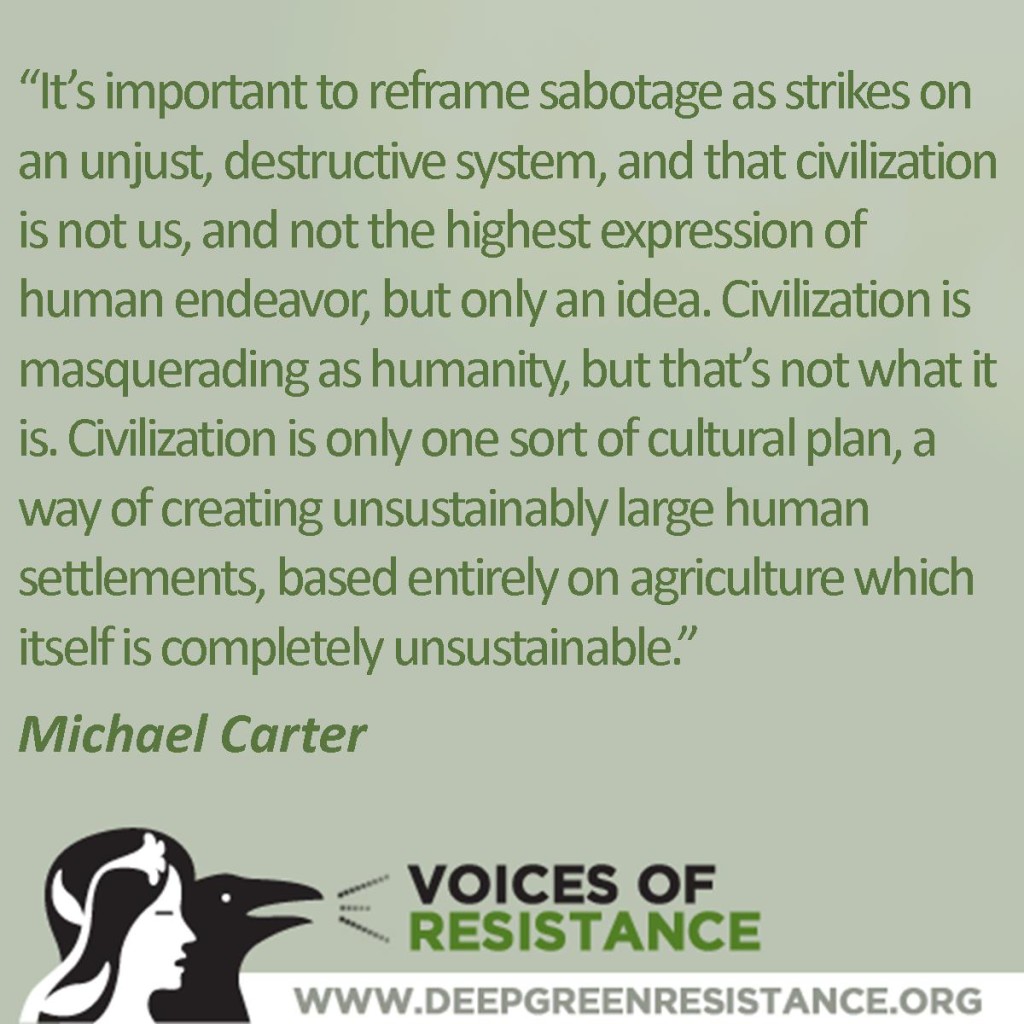
TS: I assume you didn’t just wake up one day and decide to attack bulldozers and billboards. What was your path from being apolitical to having the determination and the passion to do what you did?
MC: When I was struggling with high school, my brother loaned me a stack of Edward Abbey books, which presented the idea that wilderness is the real world, precious above all else. The other part was living in northwest Montana, where you see deforestation anywhere you look. You can’t not notice it, and there’s something about those scalped hills and skid trails and roads that triggers a visceral, angry response. It’s less abstract than atmospheric carbon or drift-net fishing. You don’t see those things the way you see denuded mountainsides. My family heated the house with wood, and we would sometimes get it out of slash piles in the middle of clearcuts. I had lots of firsthand exposure to deforested land. I wondered why the Sierra Club didn’t do something about it, how it could be allowed. We would occasionally go to Canada, and it was even worse up there. No one can feel despair like a teenager, and I had it in spades. If Greenpeace won’t stop this, I reasoned, well then I will.
I started building an identity around this, though, and that’s disastrous for a person choosing underground resistance. You naturally want others to know and appreciate your feelings and accomplishments, especially when you’re young, but the dilemma underground fighters face is that they must present another, blander identity to the world. That’s hard to do.
TS: You were fairly isolated in your actions, and you’ve emphasized the importance of a larger context. Do you see those two ideas connecting? Do you think saboteurs should be acting in a larger movement?
MC: I think saving the planet relies completely on the coordinated actions of underground cells coupled with an aboveground political movement that isn’t directly involved in underground actions. When I was underground, I had no hope of building a network, mostly because of a lack of emotional and political maturity. I also didn’t have the technological or strategic savvy, or a means of communicating with others. The actions themselves were mostly symbolic, and symbolic actions are a huge waste of risk. They’re a waste of political capital too. Most everyone is going to disagree with underground activism and it’s not going to change anyone’s mind about the policy issue—hardly anything will—so it has to count in the material realm. If people are ready and willing to risk their lives and their freedom then they should fight to win, not just to make some sort of abstract point.
TS: After you were arrested, what support—if any—did you receive from folks on the outside, and what support would you have wanted to receive?
MC: The most important support was financial, but there wasn’t a lot of it. Our plea bargain didn’t guarantee we wouldn’t go to prison. We were also worried that the feds would indict us for racketeering, an anti-Mafia charge with serious minimum sentencing. If we’d had more legal defense financing we’d of course have felt a lot more secure, but twenty years of reflection tells me we didn’t really deserve it considering how poorly we executed the actions, what little effect they caused.
That sounds like I’m being awfully hard on myself, and hindsight is always 20/20, but the point is that a legal crisis is exhausting and expensive. Your community will question whether your actions are worthy of the price they’ll have to pay if you’re caught. My actions were not.
Even so, I appreciated any sort of support. Hearing from the outside in jail is better than you’d believe. A lot of Earth First! Journal readers sent me anonymous letters. I wrote back and forth with one of the women who was jailed for noncooperation with a federal grand jury investigating the Animal Liberation Front in Washington. Seeing approving letters to the editor in the papers was also great. Just knowing that the whole world isn’t your enemy, that someone is thinking about you and appreciates what you did, is priceless.
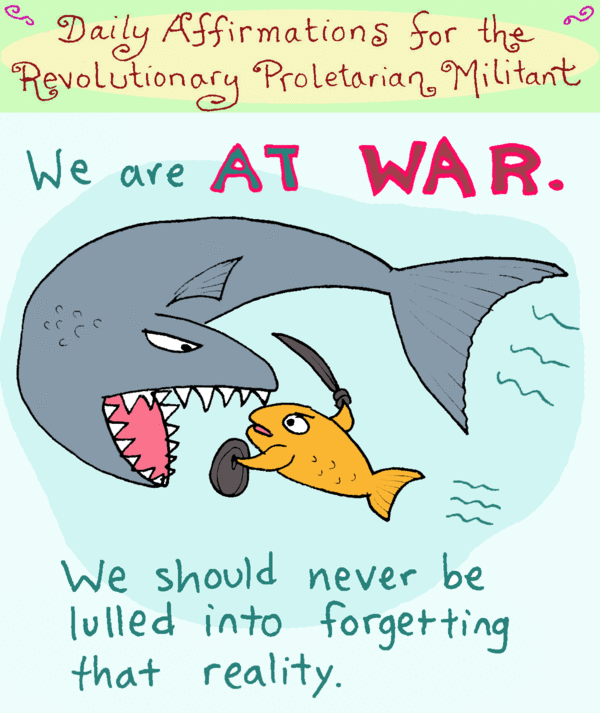
Artwork by Stephanie McMillan
TS: Do you still think militant and illegal forms of direct action and sabotage are justified? Why?
MC: I do, yes. In an ideal world I don’t think violence is the best way to accomplish anything, but obviously this isn’t an ideal world. Our circumstances are getting worse and worse—overpopulation, pollution, oceanic dead zones, you name it—and any options for a decent and dignified future for humanity are dwindling day by day, so what choice does that leave us? Individual attempts at sustainable living won’t work so long as the industrial system is running. The dismantling of infrastructure is the most important missing piece right now. It’s where the system is most vulnerable, so it should be employed right away. It can be effective, but it has to be responsible, careful, and extraordinarily smart.
One of the reasons underground political actions are so unpopular is that they’re always presented as attacks on individuals, rather than on a system. I think it’s important to reframe sabotage as strikes on an unjust, destructive system, and that civilization is not us, and not the highest expression of human endeavor, but only an idea. Civilization is masquerading as humanity, but that’s not what it is. Civilization is only one sort of cultural plan, a way of creating unsustainably large human settlements, based entirely on agriculture which itself is completely unsustainable.
The argument that militant actions are counterproductive has a little bit of merit because the scale they’ve happened on hasn’t been large enough to have any impact. For example, the Earth Liberation Front burning SUV’s. You’re left with the political fallout, the mainstream activists distancing themselves and all the other bad stuff that comes with it, but you don’t have any measurable gain, in reducing carbon emissions, say. Sabotage needs to happen on a larger scale, against more expensive targets, to be impactful. Fighters need to think big. That’s how militaries accomplish their goals—by acting against systems. They blow up bridges, they take out buildings, they disable the enemy arsenal, they kill the enemy—that’s how they function. I agree activists don’t want to identify with militarism, but it’s foolhardy to not consider what’s actually going to get the job done, and militaries know how to do that. No moral code will matter if the biosphere collapses. Doctrinal non-violence isn’t going to have any relevance in a world that’s 20 degrees hotter than it is now.
I wish an effective movement could be nonviolent, but we just don’t have enough social cohesion to orchestrate that kind of thing. There’s so few of us who give a shit, and we’re scattered, isolated, and disenfranchised. We don’t have adequate numbers, influence, or power, and I don’t see that changing. Everywhere we look we’re losing, because we don’t have a movement that can say, “No. You’re not going to do that. We will stop this, whatever it takes,” and back that up. Aboveground activists need to advocate a lesser evil, to continually pose the question of what is worse: that some property was destroyed, or that sea shells are dissolving in acid oceans? Underground activists need to act that out. It’s not a rhetorical question.
We need to remember, too, that small numbers of people can engineer profound changes when their actions are wisely leveraged. Very few took part in the resistance movements of World War II, but they made all the difference to ultimately defeating the Axis.
Interview continues here.
Time is Short: Reports, Reflections & Analysis on Underground Resistance is a bulletin dedicated to promoting and normalizing underground resistance, as well as dissecting and studying its forms and implementation, including essays and articles about underground resistance, surveys of current and historical resistance movements, militant theory and praxis, strategic analysis, and more. We welcome you to contact us with comments, questions, or other ideas at undergroundpromotion@deepgreenresistance.org
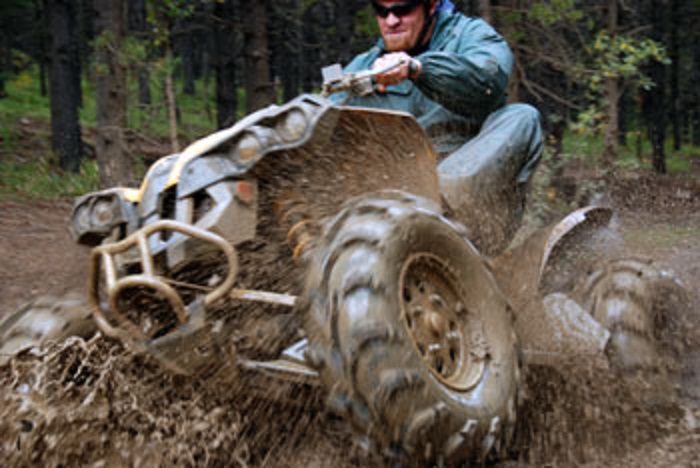
by DGR Colorado Plateau | Jan 18, 2015 | Biodiversity & Habitat Destruction, Lobbying, Obstruction & Occupation, Strategy & Analysis
Featured image by Sierra Forests Legacy
By Michael Carter / Deep Green Resistance Colorado Plateau
Read Part 1 of this series here
Law enforcement has been so ineffective in preventing illegal ORV use that citizens are usually left to face the problem on their own. Stopping ORVs isn’t easy, but short of an end to gasoline—which we can’t wait for—impacts will continue to worsen if there’s no intervention. In remote areas like the Mojave Desert and Colorado Plateau, where would-be activists are scattered and overwhelmed and the police are essentially powerless and blasé, all strategies for stopping ORVs involve active and sustained effort. Here are a few:
Pressure law enforcement to do their jobs. Carry a camera with you always, and photograph illegal activity, if at all possible getting clear images of license plates. Document the time, place, and circumstances. Bring it to the attention of both the local and federal police, if on federal land. Be polite but persistent.
Physically close illegal trails. This can be surprisingly effective. Adopt an area and close off illegal trails with rocks, logs, whatever is handy and doesn’t further disturb the land. ORVers will keep trying to use the trail, but continued discouragement might eventually work.
Physically close legal trails. Similar to the last category, people may choose to carry out underground actions that close legal routes. [1] There must be a strict firewall between aboveground and underground activists: people or groups choosing to use underground tactics should not engage in aboveground actions, and vice versa. [2]
Close and reclaim established, authorized routes through administrative and legal channels. It’s the open roads that draw ORVs deeper into land they can then illegally violate, so every closed road is particularly helpful. This, too, takes a long and sustained effort. One helpful organization is Wildlands CPR (Now Wild Earth Guardians), [3] but don’t expect any non-profit group to have the resources to do the job for you. If you love the land you live in, be prepared to fight for it—a simple solution of hard, dedicated effort. Organize with those who agree with you, and fight.
Coyote Canyon Revisited
Private landowners neighboring Coyote Canyon in southeast Utah fought the originally illegal ORV use of the canyon, and tried to stop the BLM from sanctioning it. They pleaded with the public via every venue they could think of to write letters to the BLM opposing the move, yet ORV interests grossly outnumbered the effort. Fewer than ten opponents to the trail even bothered writing letters, and when the decision to open the canyon to ORVs was made the BLM didn’t even bother notifying the respondents, a violation of the National Environmental Policy Act.
Otherwise, however, the agency had prepared its documents thoroughly and neighbors were advised that a legal challenge probably wouldn’t have been effective. Although the BLM offered a number of concessions—the trail is only open Friday and Saturday to registered users, from 9:00 a.m. until 5:00 p.m., among other restrictions—the agency legitimized crime, rewarding criminals with the sacrifice of another dwindling scrap of feral public land.
The Coyote Canyon example highlights several reasons why so few are willing to protect the land, and why they’re losing so badly. One is fear of reprisals from enemies (such as intentional trespass and vandalism of property, already an issue for neighbors of Coyote Canyon). Another is a reasonable assumption that their efforts will be ineffective—though of course making no effort will certainly be ineffective. Yet people tend to accept whatever situation they’re given. It’s uncommon to question an established arrangement, whatever it may be, and if one continues to question it life gets more uncomfortable. A resister will always face ridicule, accusations of poor mental, emotional and social adjustment, eventual ostracizing and occasionally murder. Yet social changes demand challenges to established practice.
When the BLM announced their decision to open Coyote Canyon to oil spills, noise, litter, piles of shit and soiled rags of toilet paper, almost everyone who was asked to help offered only a passing moment of sympathy. Not “what can I do,” not “what are our options,” but “that’s too bad.” It’s no wonder fights like this are frequently lost, when reactions are so feeble.
Industry and recreation groups, by contrast, are well organized and ready to rush to their own common cause. The right wing tends to be more accepting of orders; the boss says jump, they ask how high. They have something tangible they’re working for, a thing they like doing, a righteous maintenance of their privilege—such as driving anywhere they want. They stand to gain something where resistance stands only to prevent something—at least in situations like Coyote Canyon, where no comparable force opposes them.

Fighting Back
Resistance is tough. It means making one’s self unpopular, a hard thing to do among those who’ve been taught their whole lives that popularity is everything. Organizing can provide the possibility of overcoming our fear of reprisal, of ridicule, and of failure; it’s the only chance at effectively confronting injustices. Those who wish to prevent agency actions like the Coyote Canyon trail, or to promote re-localization of food production—any defensive or restorative action—can become an effective force if they work together, consistently and reliably supporting one another. Many progressives have been bled off by dogmas of non-confrontation, by intoxicating feel-good-ness, and by the idea that individualism is of primary importance. They’ve become lazy, fatalistic, and cynical; committed, organized struggle seems to be the sorry lot of desperately poor people in faraway places.
The examples that we have of committed resistance movements often are of desperately poor people, immediately threatened by the activities of rich and powerful enemies. The Movement for the Emancipation of the Niger Delta is one good example, and so are the more than 130 First Nations governments in western Canada that have gathered against the tar-sands Enbridge Northern Gateway Project and the Kinder Morgan pipeline and tanker projects. [4] We who are in a position to protect the land mostly lack the ability to respond, to turn our empathy for places like Coyote Canyon into action.
The situation at the frontiers of wild land is desperate, too. Wealth and privilege let us pretend it isn’t, because we get food from supermarket shelves and water from a tap. We see little or no connection between the health of the land and our own well-being. Public land use is an issue that can be influenced relatively easily—unlike, say, racism—because land managers so routinely ignore or violate laws and effective tactics usually have to do with citizen enforcement. But environmentalists continue to lose, partly because exploiters have miscast conflict as user-group obstruction—framing the terms of the debate to ridicule love of the wild world, separating its fate from human fate. By allowing this, would-be activists surrender the land and leave the future to sadists and imbeciles.
The destruction of the planet, however easy it is to ignore, will catch up with us all. The civilized economies that steal from the poor to give to the rich will eventually end. They need to consume limited resources to exist and those resources—fossil fuels, topsoil—will not last forever. When this happens, we will again depend upon the land to sustain us. If that land is stripped of its capacity to sustain life by industry, agriculture, and recreation, then there will be nowhere else to go, and nothing to do but wage war and starve.
Abuse of the land is now normalized by faith in nonexistent frontiers (of renewable energy and electric cars, for example) and by misguided tolerance. Naming abuse—the destruction of the land in the name of fun or individualistic pursuits and the destruction of our selves by abusive people and systems—is often portrayed as abusive in itself. This is outrageous and infuriating, but should be expected.
Though it is far less damaging than industry and agriculture, the evidence for ORV destruction is well documented and easy to come by. It’s not even really contested by ORVers themselves. Those of us determined to stop this behavior face the same problem law enforcement does: the damage is so widespread and difficult to regulate that there’s little anyone can do. But there’s also a serious lack of activists with effective tactics and a coherent strategy to follow through on. This doesn’t mean, though, that we should back down.

Identifying with the Real World
Once on Cedar Mesa, in Southeast Utah, I watched an ORV intentionally veer to crush a dozing snake. The reptile churned and writhed in the machine’s track, dead or near dead as its nerves popped and struggled and ran down. I went to it, to witness its pointless death. A thick and handsome bull snake, it spent its last moments bleeding out in the dust. Why? Why do this? What drives this sick, stupid behavior? Why does our culture hate every living thing?
I lifted the snake into the sage and blackbrush so it could at least die in its home. “If they can’t evolve to get out of the way,” someone once told me about road killed animals, “then that’s their problem.” Of course, not evolving to changing conditions is what causes extinction. There’s little doubt that our culture will not voluntarily evolve to halt the worsening conditions that industry and recreation are creating on the planet. So how does anyone fight activity like this? How do we stop deforestation, global warming, ocean acidification? And given those immense problems, is ORV land abuse something to focus limited energy and resources on?
In addition to the suggestions made in these articles, activists can develop tactics and strategies and their way forward will eventually become clear. With hard work and determination a chance of winning would almost certainly emerge. But in a world of Keystone XL pipelines and epidemic levels of fracking, is the effort worth it? If you caretake a few acres of land, blocking travel and pulling weeds, how much does it matter if you stop, or get distracted, or die? If those acres are again immediately vulnerable, is your effort a waste?
Few things anger me more that seeing wanton destruction for fun. I wonder, though, if this is an unhelpful distraction. It’s easy to get angry at something so obviously disrespecting of the land. In terms of permanent impacts, though, industry is much worse, and the scale of destruction is enormous. Of course what runs it is oil. Always this—the temporary, illusory power locked in a liquid hydrocarbon, driving ORVs, factory fishing trawlers, factory farms, and industrial agriculture. It’s warming the atmosphere and leading us to a horribly impoverished future, where most of us will be unable to afford the lifestyle we’ve been subjected and addicted to, let alone find enough to eat.
Remove the oil and the engines stop, and a besieged biosphere can begin to heal. This is part of the strategy that Deep Green Resistance has proposed. [5] But in the meanwhile…ORVs, just one part of the picture, continue to cut apart what little wild life remains, the last seed bank of evolution as we’ll ever know it. The momentum of established civilized practice is now enormous—seemingly unstoppable—and its terminal is in global destruction, the eradication of all complex life. Challenge to this system is so psychologically and practically difficult that most of us ignore it.
Fighting for the real, wild world can begin with the understanding that humans are not everything, and that the fate of the world is ultimately our fate. It is much different to fight for your own beloved family than for a rocky canyon you’ll never visit. We progressives like to talk about how hatred of “other” races cannot be tolerated (not that much is ever done about that). But we hardly ever extend this principle to the non-human world—constant victim of our culture’s violence—because we’ve been conditioned to believe that humans are all that matter. The loons, the snakes, the too-slow creatures smeared across the roads and ground under rubber tires into the dirt, they and the people yet to come who won’t be able to live as we have because the oil is gone—none of them will care about our abstract, self-indulgent moral wrestling. That is the wall that human supremacy has built around us; it must be torn down.
Imagine again that an occupying culture, whose every act is force and theft, was destroying the means of your survival. Imagine them extracting fuel to use the world as a playground. Of course, it is not enough to stop them from driving their toys in every possible place. To survive in the long term we must also stop the extraction, the root of the problem, and eliminate the fuel for destruction. We must reclaim our adult responsibilities and stand up to defend the land where we live, knowing that until oil extraction and consumption is ended, there will always be a new group of occupiers finding new ways to destroy the land.
Endnotes
[1] Foreman, Dave. Ecodefense: A Field Guide to Monkeywrenching. Tucson: Ned Ludd Books, 1987, 89-109.
[2] Security Culture: A Handbook for Activists (PDF)
[3] “Resources,” Wild Earth Guardians, accessed July 13, 2014, http://www.wildearthguardiansresources.org/
[4] Carrie Saxifrage, “How the Enbridge Pipeline Issue Unified Northern BC,” The Vancouver Observer, February 13, 2012, http://www.vancouverobserver.com/politics/2012/02/13/nation-building-how-enbridge-pipeline-issue-unified-northern-bc
“Interior First Nations Pipeline Ban,” Dogwood Initiative, You Tube, December 2, 2010, http://www.youtube.com/watch?v=4G5KtqPSW8Q
Carrie Saxifrage, “No Oil Pipeline Here: Enbridge Northern Gateway Joint Review Panel in Smithers finds 100% opposition,” The Vancouver Observer, January 17, 2012, http://www.vancouverobserver.com/sustainability/2012/01/17/enbridge-northern-gateway-joint-review-panel-smithers-finds-100-opposition
[5] “Decisive Ecological Warfare,” Deep Green Resistance, accessed August 28, 2014
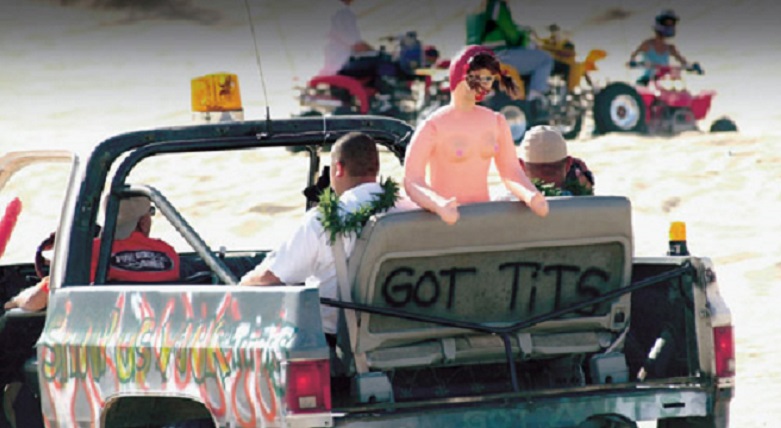
by DGR Colorado Plateau | Jan 7, 2015 | Biodiversity & Habitat Destruction
By Michael Carter / Deep Green Resistance Colorado Plateau
Imagine a time when you never once worried about losing your home or your means of making a living. Imagine your community used to be prosperous and well-run, providing everything you needed. You never gave a thought to giving back to it, though you always did and everyone else did, too. It hasn’t been this way for a long time—an invasion of thieves and murderers has taken all that away—but you remember what life was like.
The land is now impoverished by an unwelcome, occupying culture so self-important that they take everything without shame or even thought. These aliens have built their roads, power lines, and reservoirs all around you, siphoning every bit of your community’s resources for their own purposes. You have no recourse when an oil rig is set up in your town’s park, hospital, or swimming pool. You are helpless when they cut your watershed forest. There is nothing you can do about it, so you and your parents and your children and everyone else you know struggle on with no police to protect your health or property, no court to hear your grievance. You’d turn to your neighbors for help, but they’re in the same situation. The occupiers are everywhere, and they are all-powerful.
It’s not enough they’ve poisoned your water, built roads through your desert, and grazed their cattle across your range, stripping the grass from the ground which whips up into gritty brown curtains in the smallest wind. Many of your friends have been shot and left to rot in the street, but this doesn’t trouble the invaders; indeed, some of your children have been taken and kept in cages for their amusement. Now they want what’s left. They want everything, every inch of ground that once gave you all the wealth you ever wanted, all you could ever want.
In this dusty fragment that once was rich and whole, you barely get enough to eat and often feel ill because the water tastes of some sharp chemical. One day, engine noise comes from where no one has heard it before. Not along the ribbons of pavement where your kin are occasionally crushed to death, but in the last sad vestige of the flowering provident earth you’ve always loved. The machines come in packs. Aliens guide them over hills and through streams, muddying the water you and your children must drink. They roll over your friend’s house and you can hear them screaming inside, see their torn bodies, their bones stirred into the wreckage, smell their blood. You run away in pure bright panic as the machines veer insanely this way and that, destroying the neighborhood you grew up in. You might get away, but very likely you won’t. If you’re noticed at all, the end of your life will only be entertainment for the one who takes it.
This is what off road vehicles do.
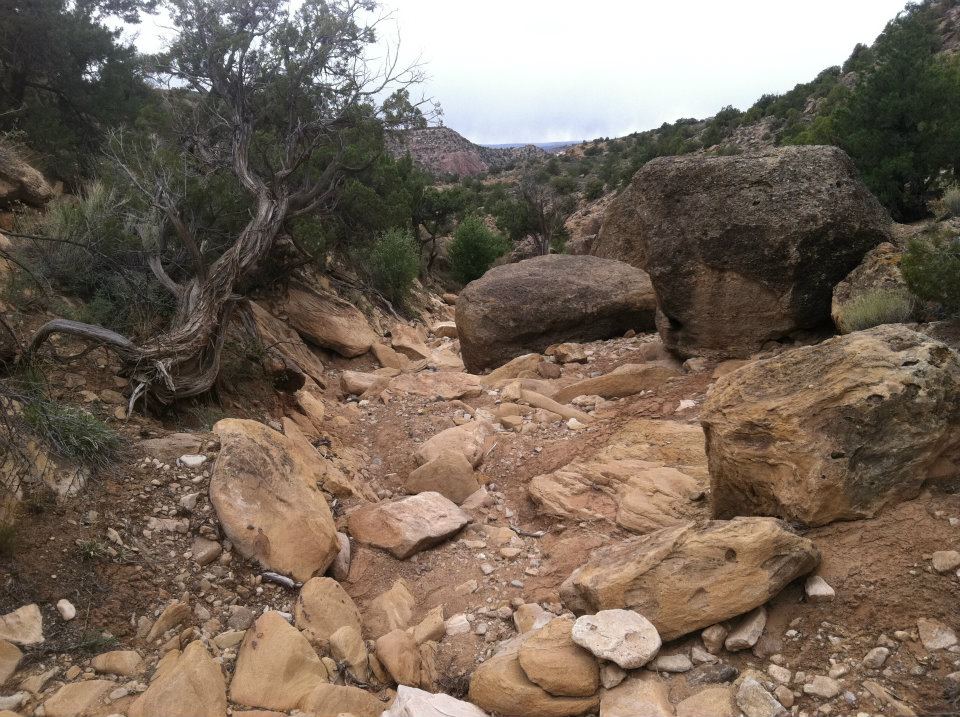
Coyote Canyon
Coyote Canyon and Other Sacrifices
Coyote Canyon is a small rocky tributary to Kane Springs Creek on Bureau of Land Management property just south of Moab, Utah. It recently became another off road vehicle (ORV) trail. Like many such trails, it began illegally when specialized, expensive ORVs called “rock crawlers” began using it without BLM authorization. ORV users prompted the BLM to write an Environmental Analysis to make the route official, and now Coyote Canyon is in the BLM’s words “an extreme trail specifically designated for rock crawler-type vehicles only. The route is one-way up a small canyon and down another, and although it is only 0.65 miles long can easily take all day to navigate as refrigerator-sized boulders must be traversed. Only HEAVILY modified vehicles can make it through. This route provides rock crawler enthusiasts an opportunity to challenge both their rigs and skills in a unique setting.” [1] One of the main reasons ORVers wanted the “unique setting” is that a roll-over accident, not uncommon to rock-crawlers, won’t pitch the vehicle and its occupants off a cliff.
The noise and disturbance of ORVs fragment habitat and push public-lands policies toward more development by turning vague routes into established roads. In some instances ORVs are exclusively to blame for the endangerment of a species—such as at Sand Mountain, Nevada, formerly “Singing Sand Mountain” until it was overrun by machines churning to dust the habitat of the Sand Mountain blue butterfly. The Center for Biological Diversity writes that the butterfly “is closely linked to Kearney buckwheat; larvae feed exclusively on the plant, and adult butterflies rely on its nectar as a primary food source. Unfortunately, the Bureau of Land Management has allowed off-road vehicle use to destroy much of the Kearney buckwheat that once thrived on the dunes at Sand Mountain.” [2]
Land management agency inertia is easily the most immediate reason the ORVs have caused so much damage, since law enforcement is underfunded and policy-makers don’t make a priority of protecting the land and wildlife that’s entrusted to them. The Center for Biological Diversity had to sue the US Fish and Wildlife Service to even get a response to a petition to list the Sand Mountain blue butterfly under the Endangered Species Act, and the agency’s response was that they wouldn’t do it. “Not warranted.” In this case (and others such as manatees being killed by speedboats), there aren’t even any jobs being held hostage. This is recreation and nothing more, taking ever more animals, plants, and habitat from the biological legacy of the planet.

Desert Iguana, Sonoran Desert
The Utah Wilderness Coalition had this to say about off road vehicles: “Most public lands are unprotected from ORVs in Utah. Roughly seventy-five percent, or 17 million acres out of 23 million acres, of Bureau of Land Management (BLM) lands in Utah still lack any real protection (including designated routes, maps, trail signs, and other tools to ensure that these natural areas are protected) from ORV damage.
“Utah has over 100,000 miles of dirt roads, jeep trails, and old mining tracks. Driving all of these trails would be the equivalent of driving four times the circumference of the Earth.
“The BLM allows nearly uncontrolled ORV use in areas that have known but unrecorded archeological resources, putting these resources at risk from vandalism and unintentional damage. ORVs can cause damage to fragile desert soils, streams, vegetation, and wildlife. Impacts include churning of soils, distribution of non-native invasive plants, and increased erosion and runoff. Rare plant, wildlife, and fish species are at risk.
“ORV use is growing nationwide. In the past 30 years, the number of off-road vehicles in the United States has grown from 5 million to roughly 36 million ORVs. The BLM has fallen woefully behind in the management of these machines on public lands.” [3]
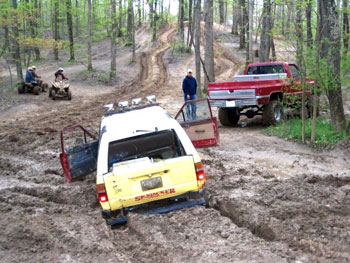
Image by Sierra Forest Legacy, http://www.sierraforestlegacy.org/FC_FireForestEcology/TFH_OHV.php
“The Best Trails are Illegal”
Because illegal ORV use is so dispersed, it’s rare for underfunded and understaffed public lands law enforcement to catch anyone in the act. Usually what they see—what anyone sees—are the long-lasting impacts (tire ruts, crushed vegetation) and not the machines themselves. Without any evidence, there can’t be any enforcement. If you complain to the BLM or Forest Service about illegal trails, this is the response you can expect. If you can catch someone in the act, a license plate number—especially if you can photograph it—will be helpful, but there’s still the underlying issue of it not being all that illegal in the first place. A fine isn’t much of a deterrent, particularly when it’s extremely unlikely to happen at all. [4] The 30 million-odd ORVers in the US alone probably won’t ever be fined for illegal trails.
One reason why opposition to ORVs and the destruction they cause is so feeble and inadequate is because opponents are portrayed by ORV groups as wealthy elitists trying to corner access to common lands at their expense. This human-centered framing entirely discards other beings’ lives that depend on the land and water at stake.
Unfortunately, potential defenders seem to be disarmed by this tactic. A kayaker I know once explained how she used to resent jet-skis and speedboats on the lakes she paddles on, but decided she was being selfish and to just accept it. But personal peace and quiet is somewhat beside the point. Oil and fuel spilled by gasoline boat engines is toxic to fish, birds, and invertebrates, and wakes from motorized watercraft swamp nesting birds such as the loon. In terrestrial habitat, as road density increases habitat security for large animals like bears and wolves decreases. Habitat effectiveness for elk, for example, falls steeply from a hundred percent where there are no roads to 50 percent with two road miles per square mile to 20 percent with six road miles. [5] Acceptance of the destruction wrought by others might make one feel nicer and ostensibly more democratic, but it means abandoning the defenseless.
The entitlement taken by the ORVers themselves is even more aggressive and unconcerned for life. A motorcyclist, enraged by new restrictions on off-roading in the Mojave Desert, shouted at me: “It’s the fucking desert! Nothing lives out there!” Anyone who’s spent time in the desert and seen the many reptiles, birds, mammals, and plants who live there knows this is ridiculous. The Mojave is the smallest desert in North America, and is being dissected by solar energy projects, military bases, and an ever-worsening ORV infection. Desert tortoises are being displaced to the point of extinction, followed by every other Mojave lizard, snake, and ground-nesting bird in the way of the dominant culture’s activities.
Even on private land, where ORV activity is considered trespassing, landowners are often frustrated by law enforcement’s ineffectiveness.
A California organization called Community ORV Watch advises: “Given current conditions, assistance in dealing with lawless OHV [off highway vehicle] activity in the vicinity of your home is more likely from the Sheriff’s Department than either the BLM or the California Highway Patrol. None of the three agencies consider unlawful OHV activity to be a high priority, so if you are to gain any benefit from an attempted contact with them it is important that you be willing to take the time and effort to see the call through. This isn’t always easy; responses are frequently hours late in arriving or do not come at all, so be prepared for a wait…this can be inconvenient, and it’s tempting to just let it slide rather than commit to a process that could tie you up for hours…
“By not calling, we participate in our own victimization by succumbing to a ‘what’s the use?’ attitude. This hurts community morale and perception over time, and lowers community expectations for services we are absolutely entitled to.” [6] This organization’s focus, the Morongo Basin in Southern California, is especially unfortunate to be near large population areas where there are lots of ORVers.
Remote areas have their own problems, and even law enforcement organizations are admitting they’re powerless to control ORV use in their jurisdictions. In a 2007 memo, an organization called Rangers for Responsible Recreation writes:
“The consensus of [law enforcement] respondents is that off-road vehicle violations have increased in recent years. Specifically: A majority of respondents (53%) say that ‘the off-road vehicle problems in my jurisdiction are out of control.’ Nearly three quarters (74%) agree that the off-road vehicle problems in their jurisdictions ‘are worse than they were five years ago.’ Fewer than one in six (15%) believe that ORV problems are ‘turning around for the better.’” [7]
GlorietaMesa.org, “an umbrella organization consisting of ranchers, horseback riders, hikers, environmentalists, wood-gatherers, residents, hunters and off-roaders, who are dedicated to protecting Glorieta Mesa from irresponsible Off-Road Vehicle recreation” writes:
“A 2002 Utah report reveals that a high percentage of riders prefer to ride ‘off established trails’ and did so on their last outing. Of the ATV riders surveyed, 49.4% prefer to ride off established trails, while 39% did so on their most recent excursion. Of the dirt bike riders surveyed, 38.1% prefer to ride off established trails, while 50% rode off established trails on their most recent excursion.
“More than nine out of ten (91%) of respondent rangers from the Bureau of Land Management (BLM) and the U.S. Forest Service (USFS) agree that off road vehicles represent ‘a significant law enforcement problem’ in their jurisdictions. According to one BLM respondent, ‘90% of ORV users cause damage every day they ride. Most will violate a rule, regulation or law daily.’” [8]
ORV damage is just another example of privileged access to limited and stolen resources, and it extends beyond the impacted land to the airborne dust that worsens early mountain snowmelt [9] and to the spread of invasive weeds. [10] Human communities are negatively affected, too. Moab merchants make many thousands of dollars on ORV tourism, but the menial jobs that support it are taxing and degrading. ORV tourists tip small or not at all, and are notoriously rude and spiteful. This is why Moab restaurant waiters call the annual “Jeep Week” ORV event “Cheap Week,” when you see hundreds of wealthy strangers swaggering around in t-shirts reading: the best trails are illegal.
Read How to Stop Off Road Vehicles, Part II
Endnotes
[1] “Coyote Canyon Motorized Route,” U.S. DEPARTMENT OF THE INTERIOR BUREAU OF LAND MANAGEMENT, accessed July 13, 2014,https://www.blm.gov/programs/recreation/passes-and-permits/lotteries/utah/coyotecanyon
[2] “Saving the Sand Mountain Blue Butterfly,” Center for Biological Diversity, accessed July 13, 2014,http://www.biologicaldiversity.org/species/invertebrates/Sand_Mountain_blue_butterfly/index.html
[3] “Protecting America’s Redrock Wilderness: THE FACTS ABOUT OFF-ROAD VEHICLE DAMAGE,” Utah Wilderness Coalition, accessed July 13, 2014,
[4] “One possible reason for this trend [in increased ORV violations] is a failure to provide sufficient penalties to offroad riders who are caught breaking the law. ‘Possibly the greatest weakness in the ORV enforcement program is the lack of bite in judicial penalties,’ wrote one ranger from the Bureau of Land Management. ‘There is often little penalty in not paying tickets. In California… you only have to pay tickets when you renew a license,’” “First-Ever Survey of Federal Rangers Shows ORVs Out of Control, Need for Tougher Penalties,” Rangers for Responsible Recreation, December 11, 2007,http://www.glorietamesa.org/RangersForResponsibleRecreation.pdf
[5] T. Adam Switalski and Allison Jones, eds., “Best Management Practices for Off-Road Vehicle Use on Forestlands: A Guide for Designating and Managing Off-Road Vehicle Routes,” Wild Utah Project, January 2008, http://www.wildearthguardiansresources.org/files/ORV_BMP_2008_0.pdf
[6] “Report ORV Abuse,” Community ORV Watch: Protecting Private and Public Lands From Off Road Vehicle Abuse, November 7, 2011, http://www.orvwatch.com/?q=node/5
[7] “First-Ever Survey of Federal Rangers Shows ORVs Out of Control, Need for Tougher Penalties,” Rangers for Responsible Recreation, December 11, 2007,http://www.glorietamesa.org/RangersForResponsibleRecreation.pdf
[8] “Facts About OHV (ORV) Use,” GlorietaMesa.org, accessed July 15, 2014,http://www.glorietamesa.org/ohv-orv-facts-sheet.php
[9] Andrew P. Barrett, National Snow and Ice Data Center, University of Colorado; Thomas H. Painter, University of Utah; and Christopher C. Landry Center for Snow and Avalanche Studies, “Desert Dust Enhancement of Mountain Snowmelt,” Feature Article From Intermountain West Climate Summary, July 2008, http://wwa.colorado.edu/climate/iwcs/archive/IWCS_2008_July_feature.pdf
[10] Thomas P. Rooney, “Distribution of Ecologically-Invasive Plants Along Off-Road Vehicle Trails in the Chequamegon National Forest, Wisconsin,” The Michigan Botanist, Volume 44, Issue 4, Fall, 2005, http://quod.lib.umich.edu/m/mbot/0497763.0044.402/1

 TS: We agree that time is not on our side. What do you think is on our side?
TS: We agree that time is not on our side. What do you think is on our side?

